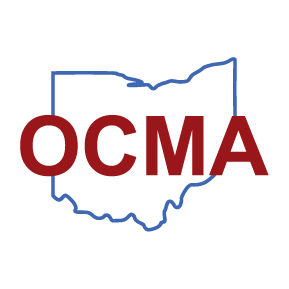 We would like your feedback on our proposed goals and strategies, including a possible name change for the organization. Your feedback will help us to align our work with our member needs. Please complete the linked survey to give us your feedback about the aforementioned proposed changes.
We would like your feedback on our proposed goals and strategies, including a possible name change for the organization. Your feedback will help us to align our work with our member needs. Please complete the linked survey to give us your feedback about the aforementioned proposed changes.
Download a full copy of the Strategic Planning Roadmap that was produced to document the strategic planning process
OCMA’s membership is increasing diverse professionally. Nearly a quarter of all OCMA members have joined in 2023. But, only 30% of new members hold titles of City Manager, County Administrator, Asst. City Manager, or Deputy County Administrator.
OVERVIEW
OCMA Strategic Roadmap Needs Your Input
The Ohio City/County Management Association (OCMA) was originally founded to promote the Council/Manager form of government. The Progressive Era reforms that led to the Council/Manager form were designed to professionalize, and in turn, de-politicize, the delivery of local government services.
For years, we have aspired to promote new people joining the profession of local government service, and throughout our organization’s history, we have changed the criteria for membership to include an ever broader group of local government administrators and staff. Most recently, at the 2023 Annual Conference, the criteria for Full Membership in OCMA was amended to allow all persons working in local government in Ohio to be Full Members in OCMA.
This fall, members of the OCMA Board and Committee Chairs met to update OCMA’s 2017 Strategic Plan with assistance from staff at The Ohio State University John Glenn College of Public Affairs. These meetings, which were held August-October of 2023, evaluated OCMA’s mission with the current priorities and structure of the Association.
The historical origin of OCMA belies the fact that, today, professionalism in local government in Ohio is happening in a variety of governmental forms, by government employees who hold a range of titles, and by persons that are coming from a wider range of professional backgrounds than ever before. County and Township Administrators, Economic Development Directors, Safety Directors, City and Village Administrators, and a variety of department directors, managers and staff are all working to professionally deliver local government services to residents and businesses across Ohio.
Insights
Introductory discussions highlighted that many members have heartfelt connections to their initial exposure and connections to OCMA. Often this initial connection came through a personal invitation as students or young professionals, and the camaraderie that members express toward others in the profession is seen as one of the primary benefits of membership in OCMA.
These discussions highlighted the fact that individuals see the value of membership in OCMA differently at different stages of their career. Personal and professional needs change over time, making it necessary for OCMA to create value for members at all career stages.
Finally, the rising cost of the annual conference and the Secretariat contract mean that OCMA needs to generate more revenue to support its mission. Membership dues and sponsorships cover the current annual conference and Secretariat expenses, but there are no excess funds to support other priorities.
2023 Goals
Based on the first two strategic planning sessions, the Glenn College Project Team translated priorities identified by the OCMA Strategic Planning team into the following proposed goals and objectives:
- Grow membership by making membership as inclusive as possible.
- Expand professional development opportunities for members at all career stages.
- Support of the profession by promoting professional local government in Ohio.
“OCMA should consider changing the name of the Association to be more inclusive…toward local government employees across Ohio who work in a variety of different forms of government.”
Key Strategies
- OCMA should consider changing the name of the Association to be more inclusive. The City/County portion of OCMA’s name does not reflect the inclusiveness that the Association would like to have toward local government employees across Ohio who work in a variety of different forms of government. At times, the name is a barrier to attracting people to the association, and we want the name to reflect our mission to promote excellence in local government in Ohio, regardless of the form of government or the administrative level of the employee.
- OCMA should consider adjusting membership fees to encourage entry into the Association and retain members across career stages by considering a tiered structure for annual membership. This could include a discount program for organizations that purchase multiple memberships, as well as reduced fees for members who are from smaller communities or in earlier stages of their career.
- Align the committee structure with the three goals of OCMA: 1)grow membership, 2) expand professional development opportunities, and 3) support of the profession. OCMA should also eliminate duplication of roles across existing committees.
- Incorporate diversity, equity and inclusion (DEI) into every OCMA goal and objective, rather than having it as part of a separate committee, and appoint a Board member to advocate for DEI strategies.
- Identify and assign individuals to be responsible for specific revenue generating strategies, and to work together on those strategies.